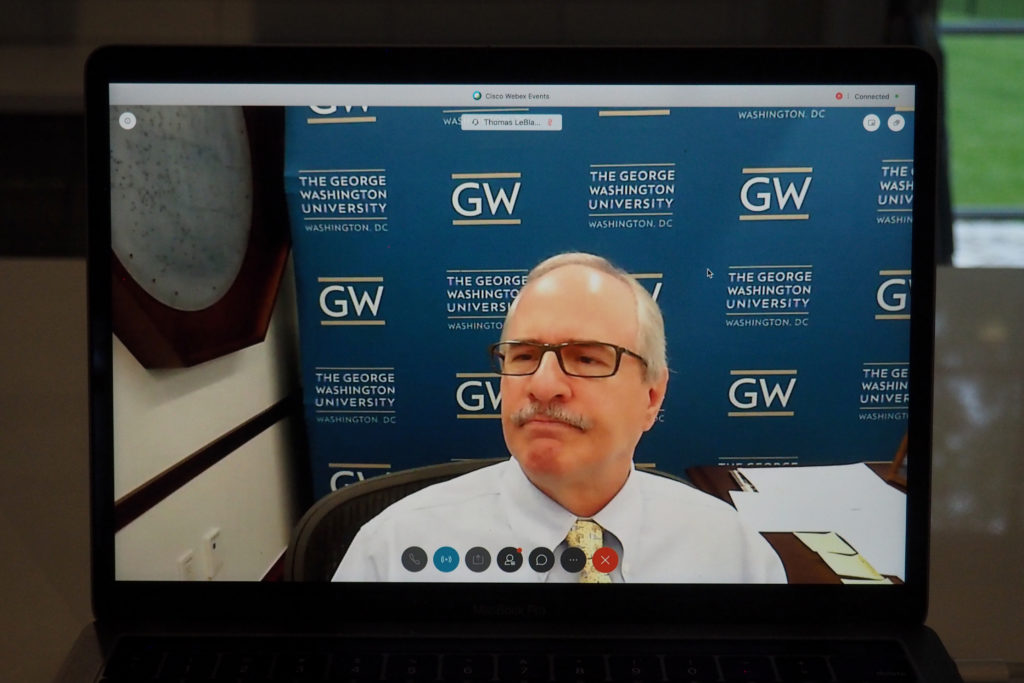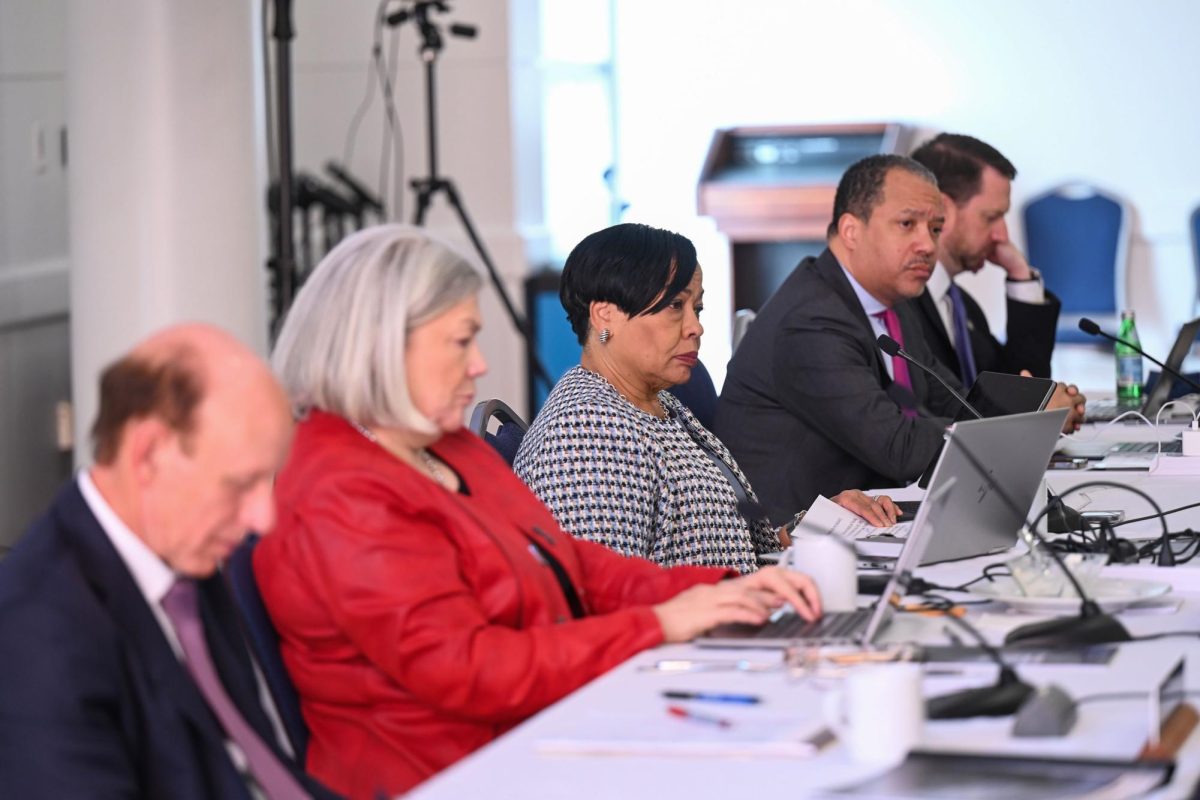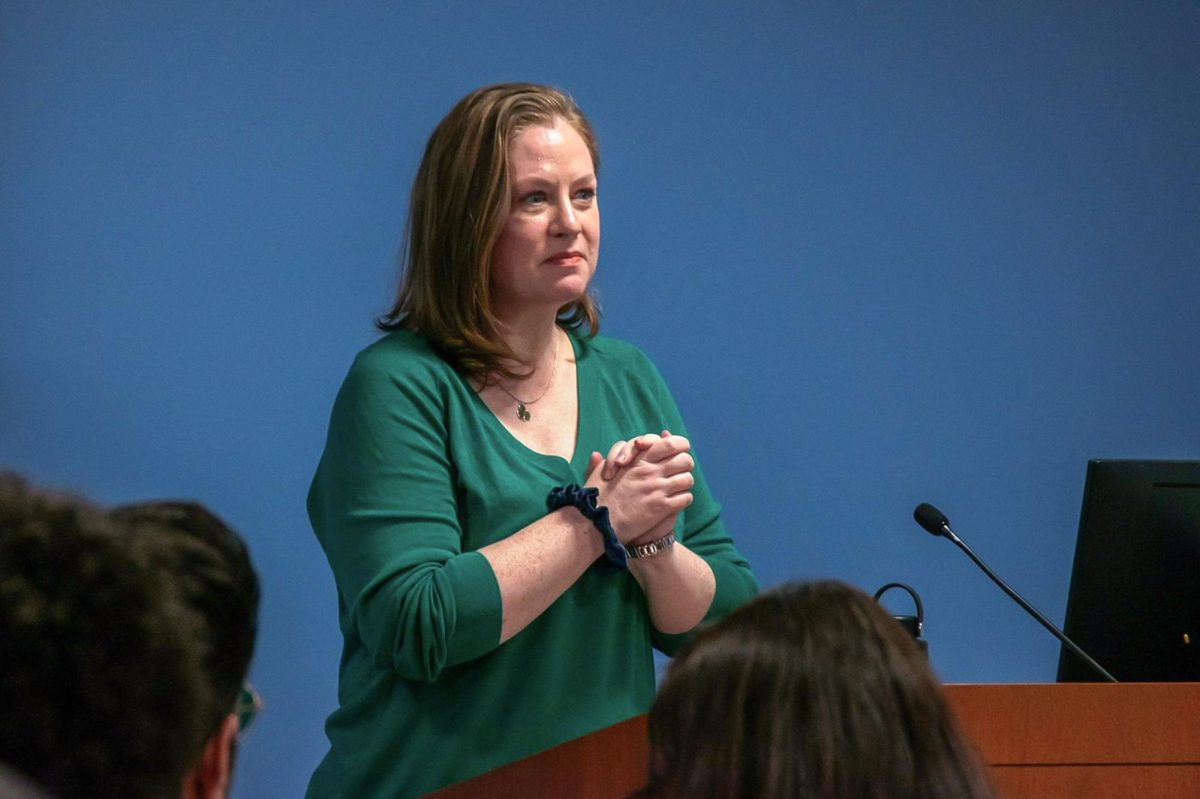As GW’s reopening plan awaits approval from the District, officials said they are “reconsidering” aspects of the plan on a “daily basis” as new information becomes available.
University President Thomas LeBlanc and Provost Brian Blake said at a virtual Faculty Senate meeting Friday that officials are still aiming for a hybrid instruction model this fall, but the facts “have changed substantially” in the past few weeks and months. Administrators overseeing GW’s testing strategy said students will be regularly tested for the coronavirus throughout the semester.
“The facts are changing on a daily basis,” LeBlanc said. “What we know today is very different from what we knew one month ago or what we knew two months ago, when we first started to lay out scenarios and plan for a fall reopening.”
LeBlanc said he knows students, faculty and staff want certainty regarding fall plans but is asking the campus community to be flexible as officials continue monitoring the ongoing situation.
“I do want to be clear: we are reconsidering our reopening plan on a daily basis, as well as our ability to test in the case of a surge,” he said. “We’re looking at our ability to manage a population that includes students, residents and graduate students and looking at the ecosystem of our campus. That is very much under active consideration as we continue to monitor the data.”
Blake said models project more than 2,200 freshman students to enroll this year and “close to” 250 transfer students, but some students may choose to defer their enrollment because of the virus’ impacts. Prior to the pandemic, officials hoped to enroll 2,250 freshmen and 300 transfer students this fall.
He added that currently just more than 40 percent of courses will be offered exclusively online, and 56 percent of faculty indicated on a recent survey that they have “some level” of uncomfort teaching in person this fall.
“We’re updating the schedule of classes so students can tell which of their classes will be in person or online,” Blake said. “This will allow students to decide, based on their personal situation, which classes they’re going to attend or whether they want a residence experience.”
Lynn Goldman, the dean of the Milken Institute School of Public Health, said officials will use a laboratory-based test method in lieu of commercial test kits to ensure faster, more accurate results within 24 hours.
She said the GWU Public Health Laboratory will perform all diagnostic and antibody tests. She said the lab will also order tests, create test kits and analyze test results.
“We have our own supply chain – we can turn around the results within 24 hours, not the seven to 10 days people are often waiting to get results from commercial labs,” Goldman said. “These are not the point of care tests that you’ve heard about that have problems with sensitivity.”
Goldman said officials hope to start the semester as “COVID-free” as possible and floated the possibility of imposing an initial quarantine for those returning to campus before their initial test. She said GW public health experts are looking at students’ zip codes to examine how many people may have the virus prior to arriving back on campus.
She said officials are planning to test faculty, students and staff upon their arrival to campus, again three to five days later and on a regular basis thereafter. Goldman said officials as of now plan to test undergraduates and people who work with them on a weekly basis and will test faculty, graduate students and staff on campus monthly.
Goldman added that students, faculty and staff – particularly those with underlying conditions – can opt into the group tested on a weekly basis.
“We have the general aspiration of wanting to start the semester COVID-free and to start testing people when the school year begins,” she said.
Goldman said GW has the capacity to conduct 7,500 pooled PCR tests – which involves mixing several people’s biological samples and examining them in a single test – and 1,500 non-pooled antibody tests per day, both of which are free of charge. Goldman added that antibody tests will be offered to all but may not be mandatory.
She said officials will use data from the tests to determine how much COVID-19 spreads across campus over the course of the semester, which she said can help officials plan for the spring semester.
“We can get a lot of information about testing everyone at the beginning and the end of the semester and know overall what kind of viral transmission we had on campus,” she said.
Goldman said officials will ask members of the GW community to monitor themselves for symptoms using a software system like PointClickCare, which allows users to track their symptoms. She said individuals’ health information will remain private but said if the software detects patterns in people’s symptoms, they will be directed to telehealth services.
She said officials will create the Campus Case Support Team to engage in response to and containment of COVID-19 cases on campus. Goldman said the team will ensure that people who have been in close contact – defined as being within 2 meters of someone for 15 to 30 minutes – with an infected person will be quarantined for two weeks.








